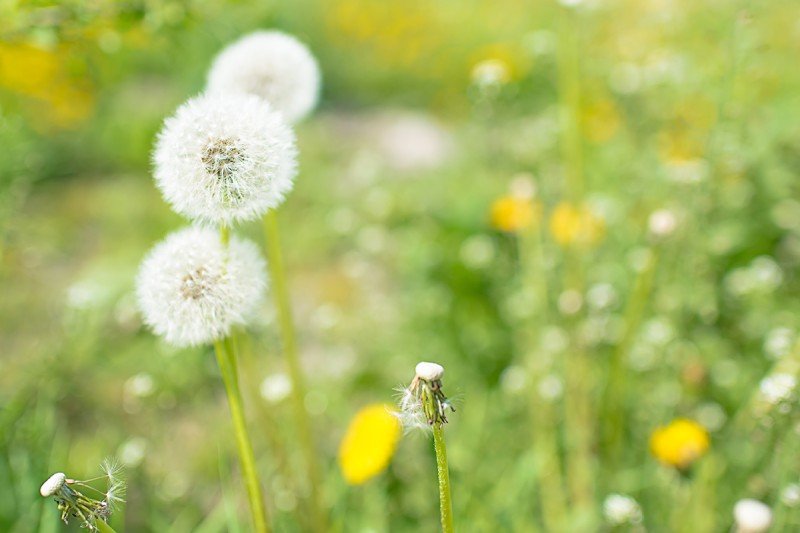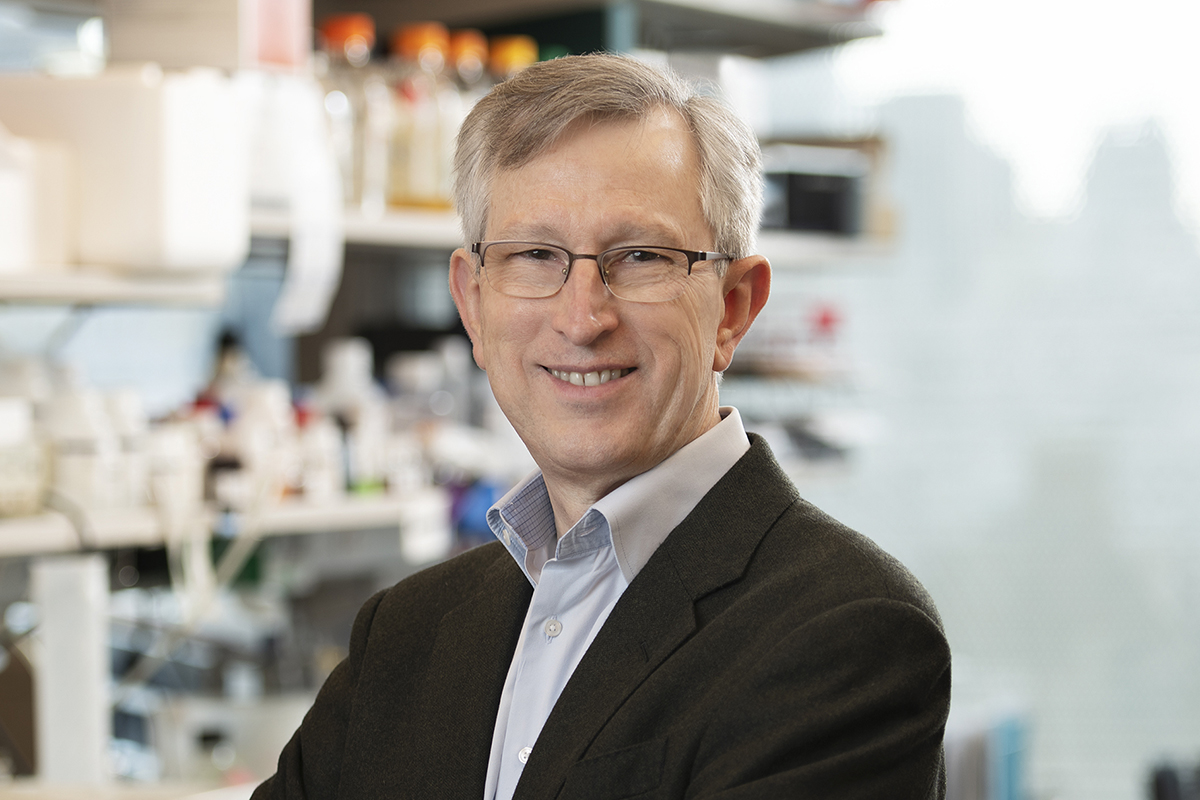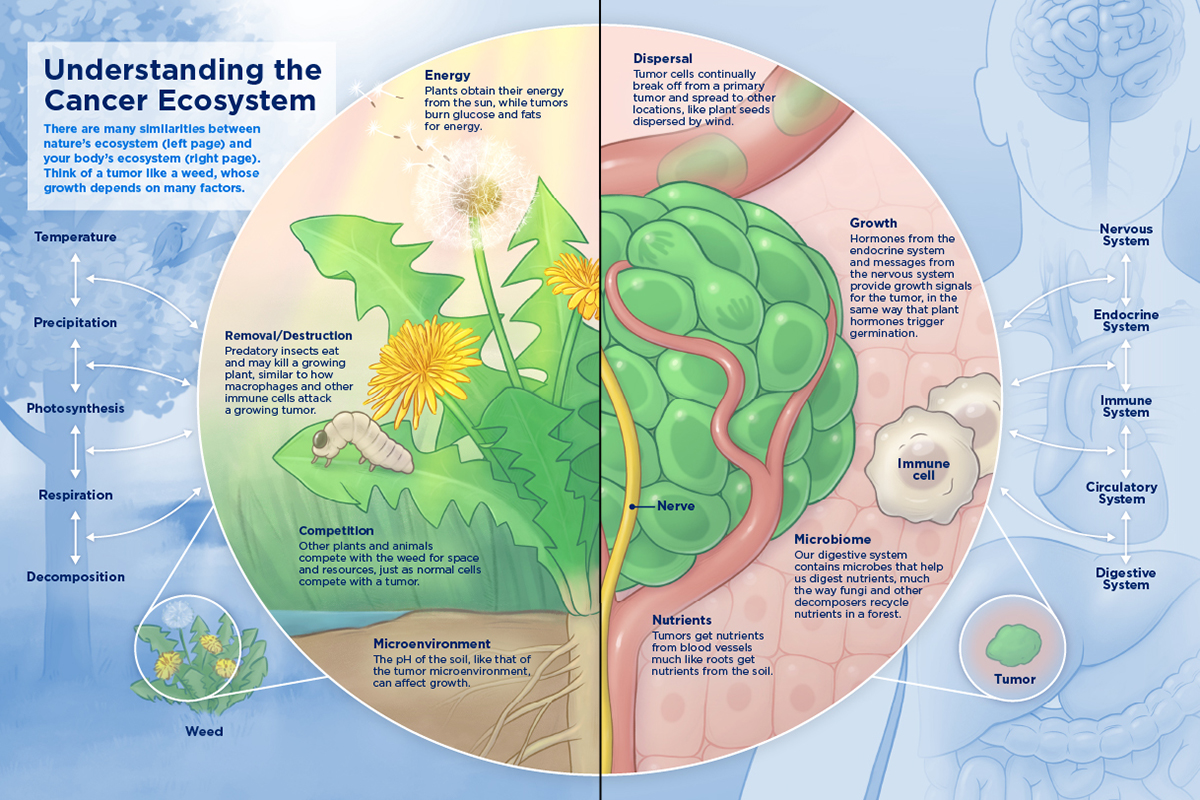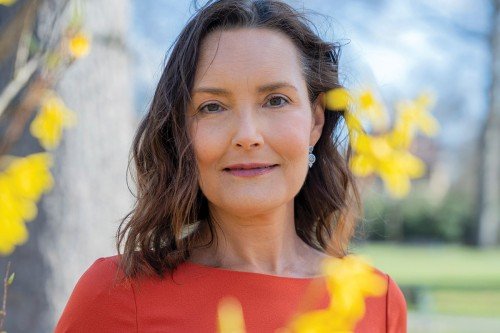
When the ambitious effort to sequence all the DNA in the human genome completed its first draft in 2000, scientists and government officials around the world heralded the achievement of the Human Genome Project.
“Without a doubt, this is the most important, most wondrous map ever produced by humankind,” said President Bill Clinton, likening it to the American frontier map created by explorers Meriwether Lewis and William Clark in 1806. “With this profound new knowledge, humankind is on the verge of gaining immense new power to heal.”
Indeed, the Human Genome Project led to many important scientific and therapeutic advances. Thanks to the technology spurred by the project, it eventually became possible to sequence the genomes of tumors, too. Scientists discovered specific changes in the DNA sequence of genes — specific mutations — that transformed normal cells into cancer cells. In turn, this led to the development of drugs that target tumors with these mutations in order to save more lives.
However, two decades later, scientists have also uncovered what genes do not control, and what they cannot explain about health and illness.
The more scientists learn about genetic mutations, the more they are coming to understand that such DNA changes alone do not cause cancer. A recent study of more than 25,000 MSK patients found no single gene that, when mutated, would predict whether a tumor will metastasize to a particular organ.
“Specific mutations do little to explain how individual cancers spread,” says Joan Massagué, Director of the Sloan Kettering Institute and the Marie-Josée and Henry R. Kravis Foundation Chair. “It’s all about adaptation of the spreading tumor to the organs it travels to.”

Joan Massagué, Director of the Sloan Kettering Institute, will oversee the new Kravis Cancer Ecosystems Project.
In fact, scientists now know that the same genetic mutation that promotes cancer in one tissue may leave another unscathed, highlighting the need to understand what else is going on.
This need to look beyond genes, to the interactions among genes, cells, tissues, organs — even whole-body systems — is the mission of the newest scientific initiative from Memorial Sloan Kettering Cancer Center (MSK): The Marie-Josée and Henry R. Kravis Cancer Ecosystems Project.
“It is for us, as scientists and physicians, a watershed moment in cancer research,” says Dr. Massagué, who will oversee the project. “We are shifting the focus from mutant genes in the context of cancer genomes — a staple of research over the past decade and a great source of therapeutic as well as diagnostic insights — to a focus on cancer cells in the context of biological ecosystems.”
As its name implies, the Kravis Cancer Ecosystems Project will galvanize a more global and systemic approach to cancer research than has previously been undertaken, with the aim of tackling the most difficult remaining cancer challenges, including that of metastasis. But first, what exactly do scientists mean by the cancer ecosystem?

What Is Cancer’s Habitat?
Consider the ecosystem that we are all more familiar with — the one outside our doors. That ecosystem is made up of the plants and animals that make their home there. It also includes the food they consume, the elements and minerals that are recycled when organisms die, and the nonliving parts of the environment (like precipitation and temperature) that affect the climate. The parts of an ecosystem are all interconnected; changing one part can have a cascading effect on the others.
Likewise, tumors are part of a wider ecosystem that determines how they grow. They are affected not only by the genes they carry but also by the environments they encounter as they develop and spread. Cancer is not just a disease of a tumor but a disease of the whole organism that has it.
More than a century ago, the English doctor Stephen Paget proposed the “seed and soil” hypothesis to explain how cancer spreads. The idea was that cancer cells are like seeds that require a fertile and compatible soil in order to grow.
The Kravis Cancer Ecosystems Project takes an even wider, more comprehensive view. If a tumor is like a weed, then the weed’s ecosystem includes the soil the weed finds itself in, the nutrients that flow in and out of that soil, the competition from nearby plants that also require those nutrients to grow, the sunlight that warms and feeds the plant or is blocked by trees, the predatory insects that feed on the weed’s leaves, and even the animals that help disperse seeds. All these factors influence whether the weed thrives or succumbs to heartier vegetation.
Back to topTargeting the Ecosystem
The more scientists understand about the cancer ecosystem, the more they can begin to think about therapies designed to block parts of it — depriving a pesky weed of the opportunity to take over your garden.
In concrete terms, that means understanding more about several key biological processes. Perhaps the most immediate is understanding cancer’s metabolism: how it takes in and uses nutrients for energy and building blocks. Scientists at MSK, including cell biologist Lydia Finley and cancer biologist Craig B. Thompson (Douglas A. Warner III Chair), are learning that cancer cells can adapt their metabolism in ways that give them the unusual capacity to reproduce endlessly. Not only that, but the particular metabolic pathways they use can alter their identity in ways previously unrecognized — for example, making them more like stem cells, with the potential to develop into many different types of cells in the body.
Also crucial to understanding cancer are the interactions between tumor cells and other cells in the immediate environment, most especially immune cells. Immunologist Andrea Schietinger (Catherine and Frederick R. Adler Chair for Junior Faculty and former Josie Robertson Investigator), is laser-focused on understanding why immune cells often fail to stop cancer from growing in their midst. Collaborating with her are the many clinicians and translational researchers at MSK who work with patients and patient-derived tissue samples.
The more scientists understand about the cancer ecosystem, the more they can begin to think about therapies designed to block parts of it — depriving a pesky weed of the opportunity to take over your garden.
Cancer biologists Joan Massagué, Adrienne Boire (Geoffrey Beene Junior Faculty Chair), and Karuna Ganesh (Josie Robertson Investigator) are dedicated to studying the deadly process of metastasis and the question of how cells that are shed from tumors can make their way in often hostile new environments. They are learning that metastatic cells co-opt the normal processes of wound healing to take root in new organs.
SKI scientists Justin Perry, Alexander Rudensky, and Philipp Niethammer are determined to understand the role of inflammation in nurturing tumor growth, while cancer biologist Scott Lowe (Geoffrey Beene Chair) and computational biologist Dana Pe’er (Alan and Sandra Gerry Chair) are exploring the role of the tumor stroma in doing the same.
Figuring out how cancer hijacks normal development pathways is the mission of developmental biologists Anna-Katerina “Kat” Hadjantonakis (Alfred P. Sloan Chair), Charles Sawyers (Marie-Josée Kravis and Henry R. Kravis Chair in Human Oncology and Pathogenesis), and Danwei Huangfu. And that’s just the tip of the iceberg.
In fact, the more scientists learn about cancer, the more they are realizing that nearly every system in the body — from the endocrine system to the nervous system to the digestive system — can affect cancer growth. With that knowledge comes the hope that each of these systems could one day become a target for cancer therapies.
“Immunotherapy has shown us the tremendous power of treatments that leverage components of the cancer ecosystem to attack tumors,” Dr. Massagué says. “We believe that new findings to emerge from the Kravis Cancer Ecosystems Project will allow us to leverage other components of the ecosystem to the same end.”
And so a new era begins.
Memorial Sloan Kettering Cancer Center (MSK) is grateful to Alan and Sandra Gerry and Marc and Jennifer Lipschultz for their support of metastasis research at MSK.
Back to top
